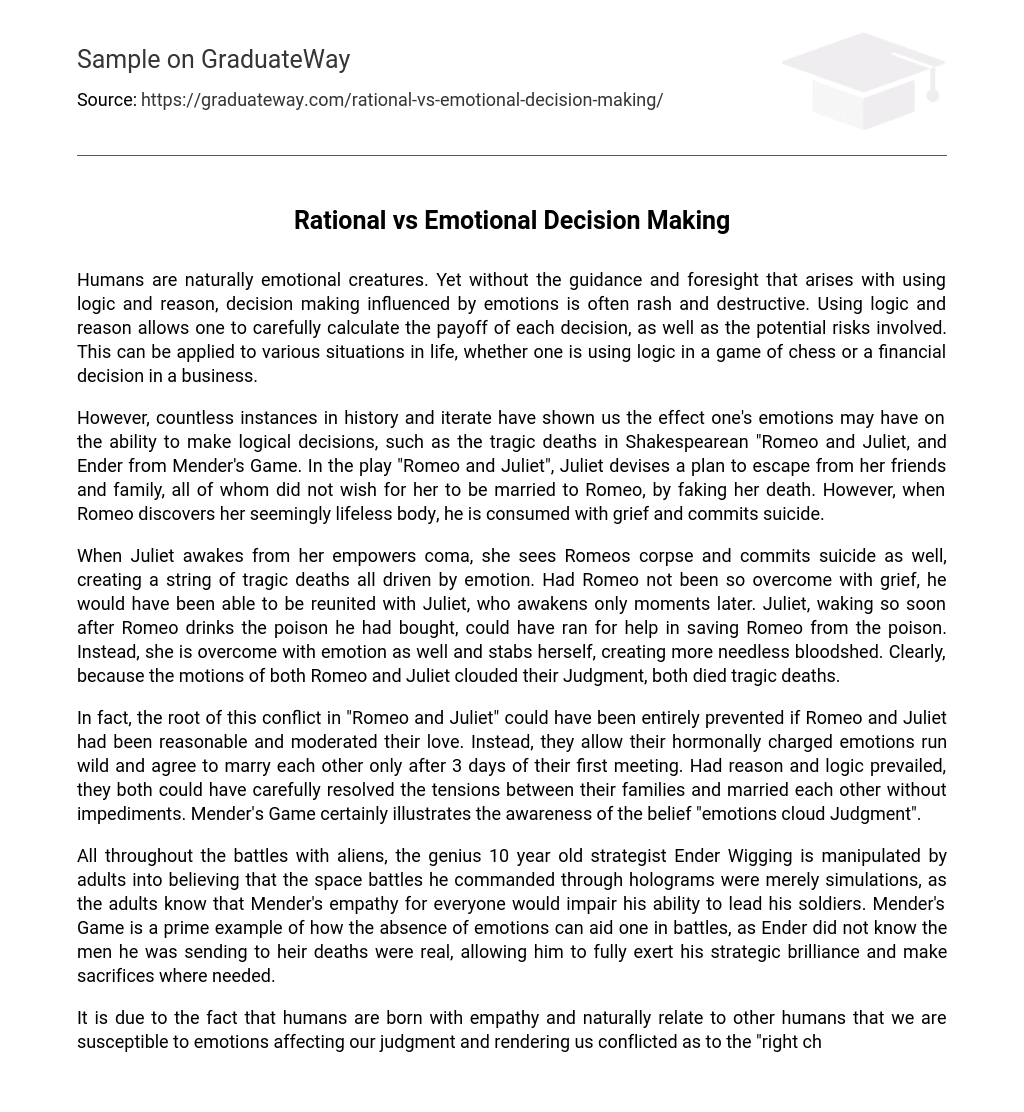Humans have a natural inclination towards emotions, however, making decisions solely based on emotions can be hasty and harmful. By incorporating logic and reason, individuals are able to assess the benefits and potential drawbacks of each decision. This rational approach can be applied to different aspects of life, such as employing logical strategies in chess or making wise financial decisions in business.
Throughout history and literature, there have been many instances that illustrate the considerable influence of emotions on decision-making. This is evident in tragic situations such as the deaths of Romeo and Juliet in Shakespeare’s play, as well as Ender from the book Mender’s Game. In “Romeo and Juliet,” Juliet devises a strategy to elude her disapproving relatives who object to her marriage with Romeo by feigning death. However, upon finding what he believes to be Juliet’s lifeless form, Romeo becomes consumed by grief and chooses to take his own life.
When Juliet wakes up from her uninterrupted coma, she finds Romeo’s lifeless body and decides to end her own life. This results in a series of tragic deaths driven by intense emotions. If Romeo had not been overwhelmed by grief, he would have had the opportunity to be reunited with Juliet, who awakens just moments later. Despite waking up shortly after Romeo consumes the poison he had purchased, Juliet could have sought assistance to counteract its effects. However, she too is consumed by intense emotions and opts to stab herself instead, causing needless violence. Clearly, both Romeo and Juliet’s judgement was clouded by their overpowering emotions, leading them to their tragic demise.
The conflict in “Romeo and Juliet” could have been prevented if both Romeo and Juliet had been more rational and restrained their love. Instead, they allowed their intense emotions to dominate and agreed to marry just three days after meeting. If they had employed reason and logic, they could have resolved the tensions between their families and married without any obstacles. “Ender’s Game” also exemplifies the idea that “emotions cloud judgment”.
All throughout the battles with aliens, the genius 10-year-old strategist Ender Wigging is manipulated by adults into believing that the space battles he commanded through holograms were merely simulations. The adults know that Ender’s empathy for everyone would impair his ability to lead his soldiers. Ender’s Game highlights how the absence of emotions can aid in battles. Ender did not know the men he was sending to their deaths were real, allowing him to fully exert his strategic brilliance and make sacrifices where needed.
Humans are inherently empathetic and tend to connect with others, making us vulnerable to emotions that can cloud our judgment and leave us uncertain about the “right choice.” Nonetheless, through the use of logic and calculations, one can make the optimal decision and successfully attain their goal. Southampton explores the concept of rational versus emotional decision making.





